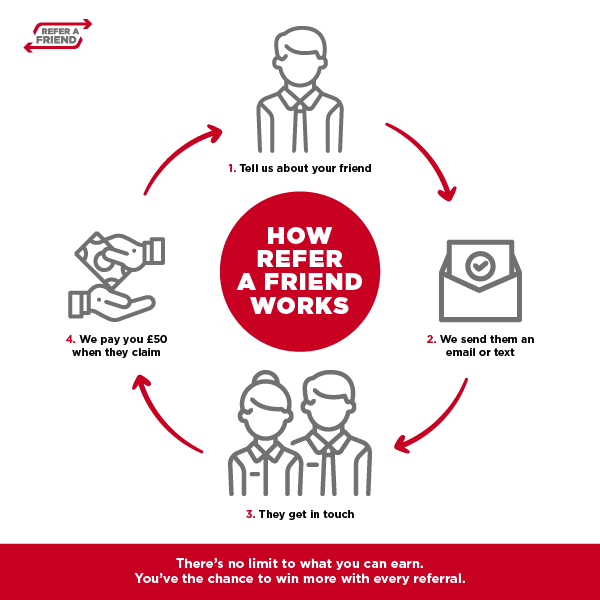How to stay safe from scammers this Christmas, as UK consumers lose £1,2bn a year to fraud
Friday 15th December 2023
In our latest insight we reveal how the public can stay safe against scammers this Christmas, as cases of fraud cost UK consumers £1.2bn on a yearly basis.
We have analysed the latest data on both the annual number of cases of authorised and unauthorised fraud* in the UK and the total amounts lost to scammers and how this has changed year on year.
The good news is that the research reveals that the number of consumers falling foul of fraud has declined. The total number of both authorised and unauthorised cases of fraud fell by -3.9% between 2021 and 2022 (latest available data).
However, there were still almost three million incidents of fraud recorded in 2022, with scammers successfully stealing £1.2 billion from UK consumers.
The most common cases of fraud related to payment cards, with scammers accessing our payment card info to make withdrawals over 2.7m times in a single year.
Purchase scams were the second most common, with 117,170 cases reported, whereby consumers pay for products at discounted prices that fail to ever turn up. Purchase scams were also one of five types of fraud to have seen an increase in cases when compared to the previous year - up 17.5% versus 2021.
Other types of fraud that have grown in prominence include advance fee fraud (+33.3%), cheque related fraud (+18.5%), romance scams (+11.6%) and impersonation based fraud (+8.4%).
Protect yourself from common Christmas scams
A sad reality is that scammers and fraudsters see the festive season as a great opportunity to con people out of their money, not least through payment card fraud and purchase scams for those looking to secure Christmas gifts at a lower price.
Experian has said that credit card fraud is expected to peak in the months of November and December, and further data from McAfee states that 22% of Brits have been the victim of an online scam during the festive shopping period, with 61% of them losing money as a result.
So how do you protect yourself from scammers at this time of year?
-
Don’t pay anyone you don’t recognise or know
No matter how urgent or last minute your Christmas purchases are, never pay money directly to a person or business that you do not know or recognise.
-
Check website authenticity
A lot of fraudsters operate as large organisations and often set up authentic-looking websites with which to scam people. It can be hard to tell a scam website from a real one, so the best thing to do is check the URL at getsafeonline.org/checkawebsite.
-
Log out of websites
If you receive a text or email that you are not expecting, be it from a company or person, never click on any links provided in the message, and don’t provide the information they ask for.
When you have finished using a website that requires you to log in and make purchases, such as Amazon, always log out. Simply closing the website doesn’t mean you’re logged out and it will be easier for scammers to snatch your details.
-
Know what deliveries you’re expecting
A very common Christmas scam is messages that claim to have been sent from shipping and delivery firms. They’ll often say that an additional shipping fee needs to be paid, or something similar. Unless you know for sure that you have ordered a delivery and that it’s coming from the courier company that has messaged you, do not click on any links or send any money. Instead, report the message to your mobile phone contract provider.
-
Report all fraud immediately
And that leads to the final piece of essential advice - always report any fraud or attempted fraud.
If you’ve lost money to fraud, report it immediately to your bank, as this will increase your chance of getting your money back and the criminal being traced.
All fraud and attempted fraud should be reported to Action Fraud at www.actionfraud.police.uk. This will help to ensure that the scammers are tracked down, and will also provide vital information that could stop others falling foul to fraud.
Bradley Post, MD of RIFT, commented:
“While banks, online retailers and law enforcement are working hard to thwart fraudsters, the unfortunate truth is that it still falls to all of us as individuals to stay vigilant in order to protect ourselves from these scammers.
Ce criminals are increasingly sophisticated, particularly when it comes to online scams, and they operate in such large numbers that it’s hard to stop them all. But by following some basic rules of fraud self-defence, you have a much better chance of stopping them in their tracks.”
*Authorised fraud and unauthorised fraud definitions
- Authorised Fraud: Here the customer is tricked into authorising a payment to an account controlled by a criminal.
Unauthorised fraud: In this type of fraud, the account holder themself does not provide authorisation and the transaction is carried out by a criminal (for example, the victim’s card details are used without their knowledge or consent).







